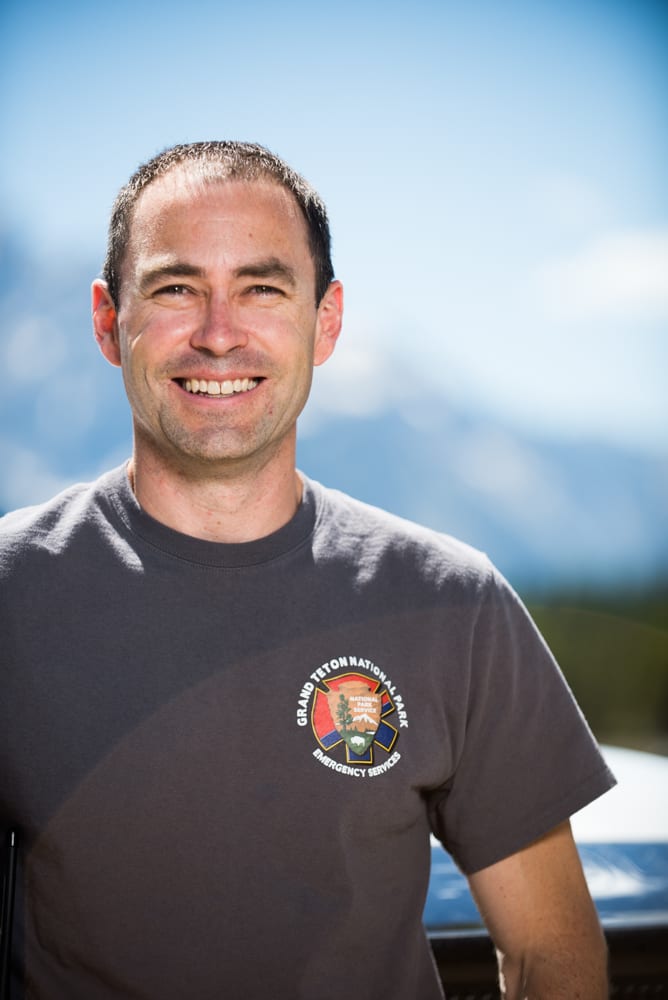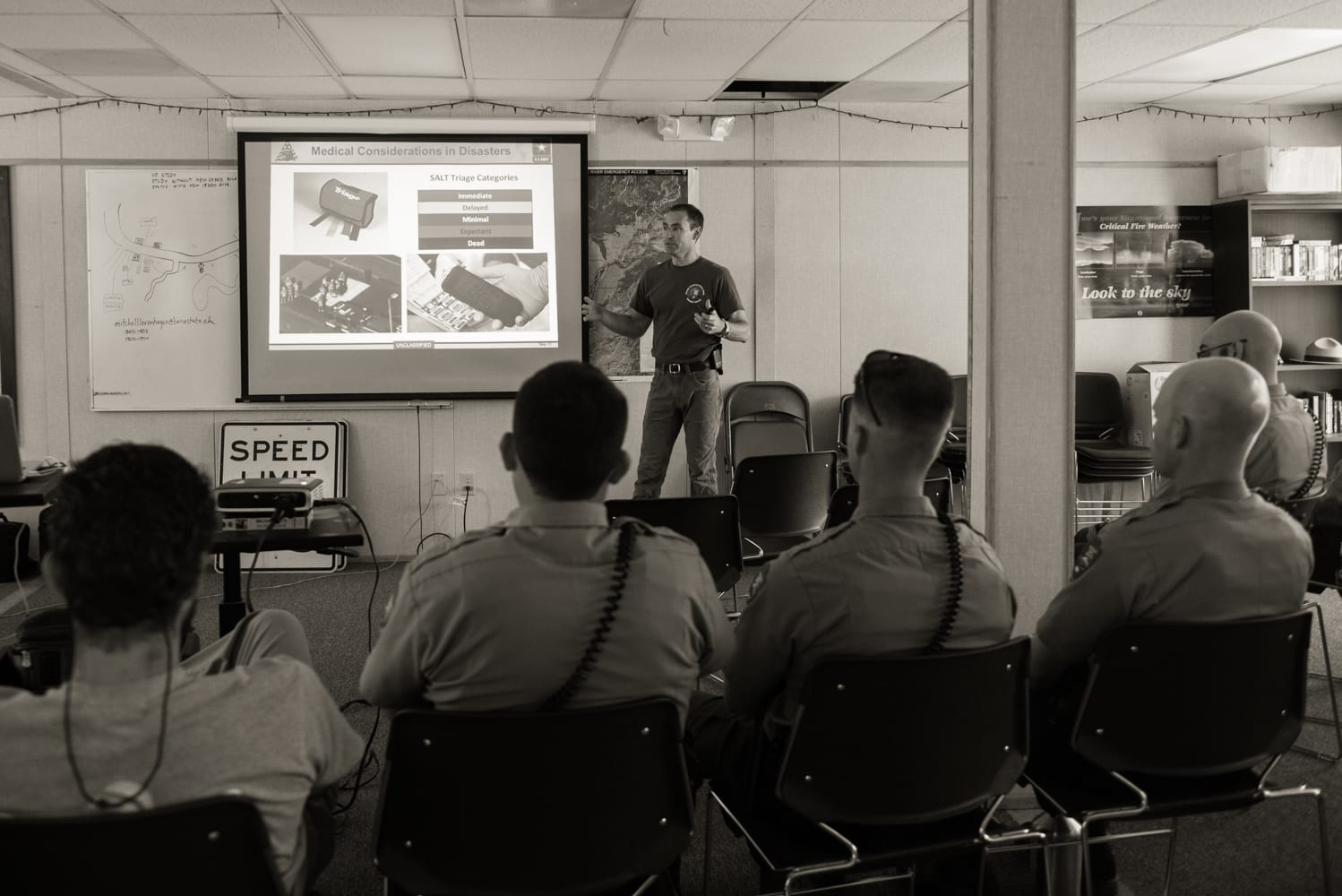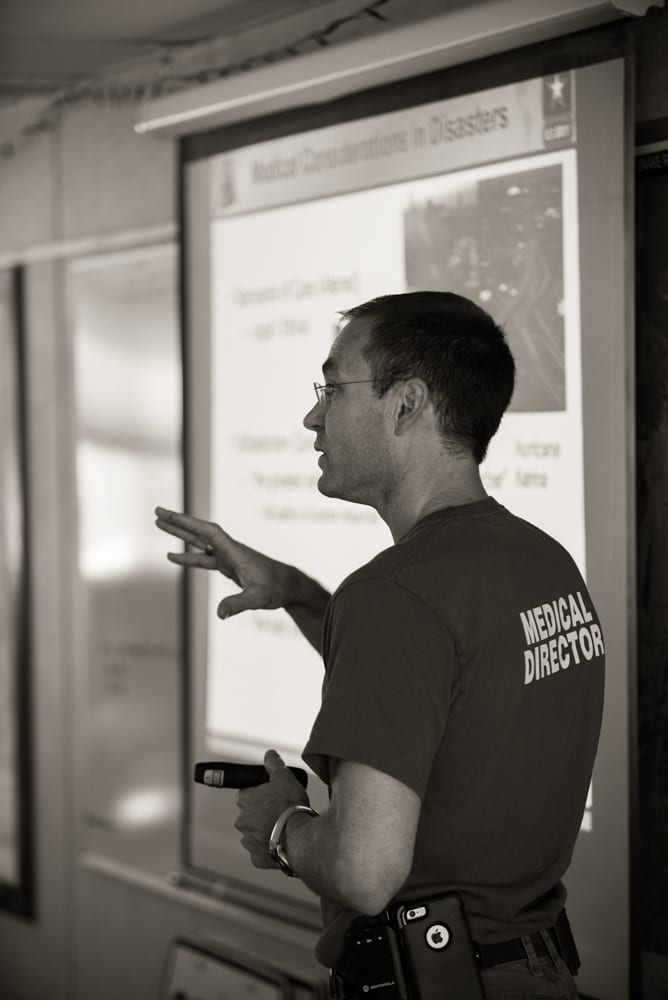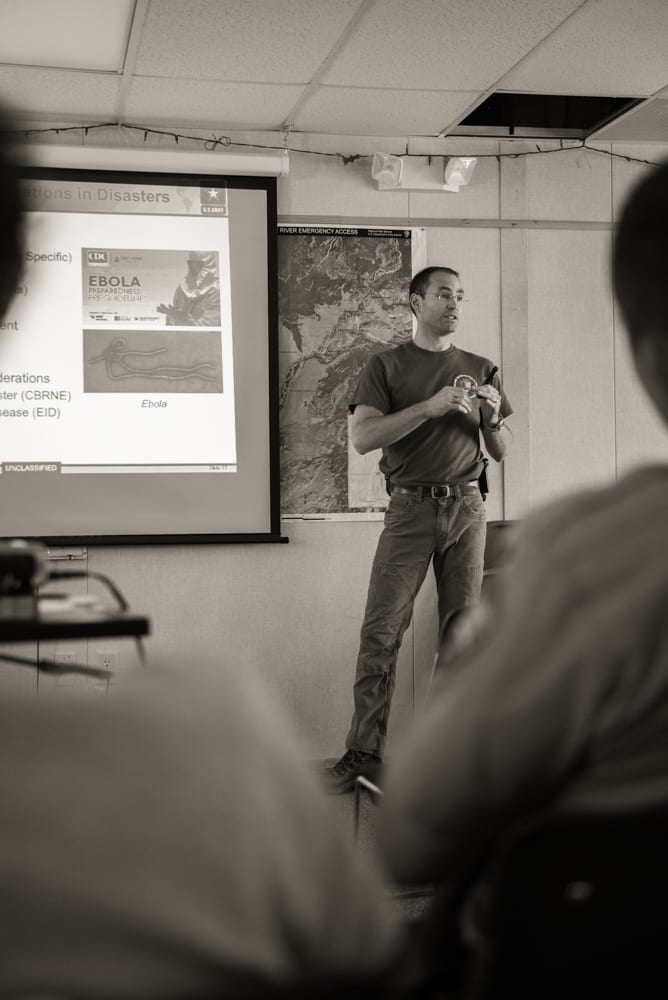Even carefully-planned adventures into the rugged terrain surrounding Jackson Hole can go wrong; unforeseen illness or injury can leave a group in a precarious situation in the mountains. Far from a hospital, with miles of rocky trail between you and the trailhead, the summer light starts to fade, and you realize that your crew is in a serious situation. Imagine the wave of relief that washes over you when you first hear the faint thrum of the helicopter rotors, the arrival of help confirmed as the metal bird rises over the horizon and aims for your location. Your sense of gratitude and deliverance swells when the door swings open, and out climbs a professional not only intimately familiar with mountain rescue, but also a highly-trained emergency medicine physician and paramedic with decades of experience around the globe.
 A Wyoming native, Dr. Will Smith spent his youth working on his family’s ranch near Wheatland. By the time he completed high school, he had earned his EMT certification. In college he continued to advance his medical career by being an EMT-Intermediate and was also providing emergency medical assistance as a Ski Patroller. This small-town start in the mountains started Will down an emergency medicine path that has since brought him around the planet and back to not only offer critical care to those who need it, but also to lead some of Jackson Hole’s finest emergency medical professionals.
A Wyoming native, Dr. Will Smith spent his youth working on his family’s ranch near Wheatland. By the time he completed high school, he had earned his EMT certification. In college he continued to advance his medical career by being an EMT-Intermediate and was also providing emergency medical assistance as a Ski Patroller. This small-town start in the mountains started Will down an emergency medicine path that has since brought him around the planet and back to not only offer critical care to those who need it, but also to lead some of Jackson Hole’s finest emergency medical professionals.
Locally, Will is not only the Co-Medical Director for Jackson Hole Fire/EMS and Teton County Search and Rescue, but also the Bridger-Teton National Forest and Grand Teton National Park. On a national level, he serves in this capacity for an impressive array of other organizations. In short, he’s one of the country’s best and brightest in contemporary wilderness and rescue medicine experts. And Jackson Hole is nothing short of fortunate to call him one of our own.
What is a medical director? Within emergency medical services, a medical director is typically a physician who provides critical guidance, leadership, oversight and quality assurance for the practice of local paramedics and EMTs within an organization. Specially trained EMS Physicians are now recognized as a sub-specialty board in medicine, just like other specialties such as cardiology, toxicology, or oncology. This growing awareness that medical directors can improve patient outcomes is significantly helping EMS providers deliver up to date and competent care, and that’s precisely what Will strives to do through his leadership of organizations here in the Tetons.
“Jackson Hole is a wonderful place to practice medicine,” he says. But it comes with its own unique challenges. “Much as some people expect, we are still a small community and have limited medical resources compared to a larger city and academic medical centers.”
But working with limited resources and saving lives in extreme conditions is no foreign concept for Will. As a Lieutenant-Colonel in the Medical Corps of the Army Reserve, he has served multiple tours in the Middle East, as well as in Egypt, Croatia, Panama and El Salvador. While the combat support hospital of Baghdad might seem like a world away from the Tetons, the technical experience as well as the international perspective have both influenced Will’s work. “It’s really interesting to be able to see how things work not just in other parts of the U.S., but all over the world,” he reflects.
Will’s quick thinking and top-shelf skills have undoubtedly contributed to some impressive rescues in the Tetons. In 2010, Will directed the medical operations of the largest single rescue effort in Grand Teton National Park history when three parties of climbers were struck by lightning not far from the summit of the Grand Teton. The carefully choreographed rescue – including over 50 rescuers and multiple helicopters – saved sixteen of seventeen strike victims. “The teamwork on this Wilderness Mass Casualty Incident was impressive to be a part of. Everyone performed to their ability and the training and expertise really paid off.”
In the years since then, Will has participated in countless rescues and responded to an astonishing variety of other emergencies around Jackson Hole. From car and motorcycle wrecks to tumbles from horses and mountain bikes, from altitude sickness to strokes and heart attacks, the doc is ready to step up and help whatever strikes the locals and visitors to Jackson Hole.

There are some things you can do to help decrease the chances that you’ll need to call on Will and his exceptional teammates when you’re enjoying the forests and mountains around the area. “Get out there and have fun, but have a plan of what to do if something does happen,” he recommends. “Always play with others instead of being solo, just in case something unforeseen happens. And always let someone know where you are and when you expect to return.” This advice – though simple – can make it much quicker and easier to get assistance into the mountains should someone in your party need it.
Will also advocates for knowing your own limitations, and respecting them. Make sure you’re choosing adventures that are appropriate to your current ability and experience level. “Don’t push it,” he adds. “Save that summit for another time – people sometimes gamble with the weather and usually don’t win.”
But don’t worry, Dr. Will doesn’t spend all of his time patching up other adventurers when their plans go awry. He has just as much passion for the outdoor sports in Jackson as the rest of us do. On his rare day off, you’re likely to find him with his family, exploring a trail or bagging a peak summit, or hitting the Snake River to cool down on a summer afternoon. When the snow flies, you’ll probably find him carving turns into the fresh mountain powder. After all, when we know how to respect the wilderness around us and play safely, it’s a playground that some of the world’s best are delighted to call home.
Learn more about Dr. Will Smith’s award-winning work and expert consulting in emergency medicine at his website.


